Here are book recommendations that helped me think critically, ask better questions, and find perspective during and after my faith transition out of Mormonism. Of course I would never claim that a believing member of the church couldn't also find value in some of these books as well.
This page is specifically for printed books. Online resources can be found here.
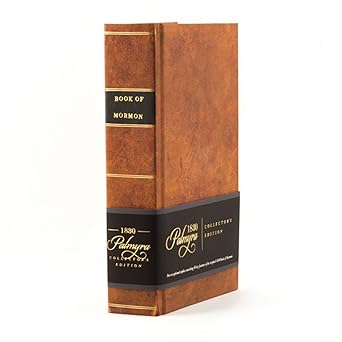
1830 Book of Mormon Replica (Palmyra Collector's Edition)
This is the original text of the Book of Mormon, without chapters or footnotes. It helped me see the book more clearly as a 19th-century novel, not scripture. The formatting reflects how it was first published in 1830, before later editorial changes. (We also have the full text here)

The Destruction of Jerusalem: Illustrated Edition: An Absolute and Irresistible Proof of the Divine Origin of Christianity
Originally published in 1805, Holford portrays the fall of Jerusalem by the hand of the Romans as the ultimate fulfillment of Christ’s prophecies, framing it as historical evidence for divine truth. This work gained traction in early America and heavily influenced Christian thought in Joseph Smith’s time. For readers exploring Mormon origins, Holford’s book highlights a key theological and literary pattern that helped shape early 19th-century American scripture writing. (Note: The version I read wasn't illustrated, but this one on Amazon has good reviews so I'll recommend it)
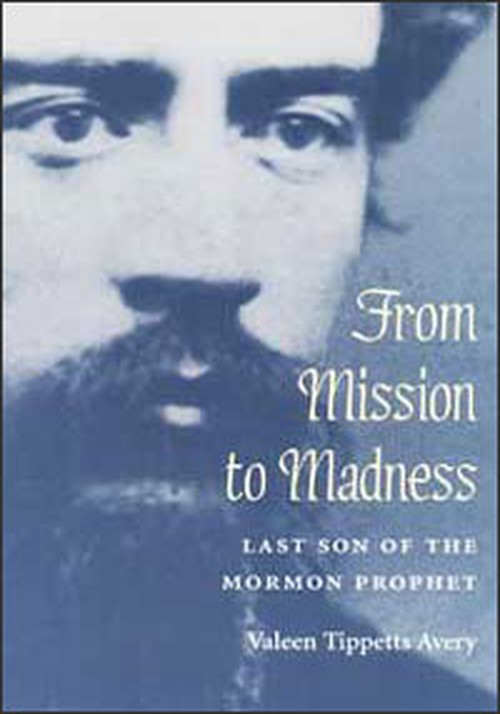
From Mission to Madness: LAST SON OF THE MORMON PROPHET
This book examines the life of David Hyrum Smith, the youngest son of Joseph and Emma Smith. David grew up in the shadow of his father’s legacy, joining the Reorganized Church and serving as a missionary, writer, and artist. Using David’s letters, poems, and other records, Avery traces David's gradual mental decline and the decades he spent institutionalized. The book offers a clear look at the tension between faith, family loyalty, and the personal struggles of a man born into a prophetic family. (Note: I have the exact copy pictured here. The Amazon page says there is no picture, but when I ordered it, it arrived with a cover matching the image you see here)
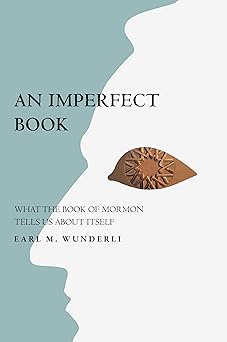
An Imperfect Book: What the Book of Mormon Tells Us about Itself
Earl M. Wunderli is a critical analysis of the Book of Mormon that focuses on its internal inconsistencies, patterns, and language. Rather than depending on external sources like archaeology or tradition, Wunderli examines the text itself to determine whether it holds up to its own claims. He approaches the book as a literary work and evaluates it through reason and close reading, offering a skeptical yet respectful critique that challenges the idea of its divine origin.
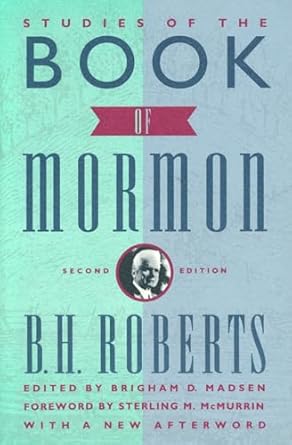
Studies of the Book of Mormon
Written by B. H. Roberts, a respected LDS general authority, this work presents internal critiques of the Book of Mormon. He raises important historical and literary problems, shared originally with other church leaders. It’s a good-faith, insider analysis that still hits hard.
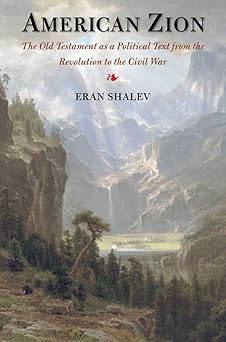
American Zion
Shalev shows how early Americans used the Old Testament to shape national identity. Chapter three focuses on the Book of Mormon, placing it into a genre he calls “pseudobiblicia.” This helped me to understand the book as part of a broader cultural trend, not ancient scripture.
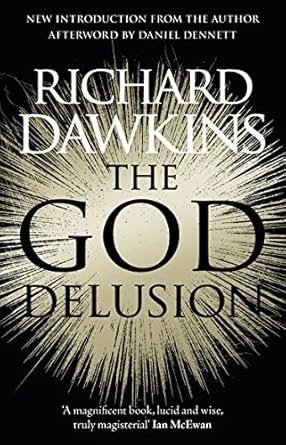
The God Delusion
Dawkins argues that religious belief is not only unsupported by evidence, but often harmful. He breaks down common arguments for God and defends science and reason as better tools for understanding the universe. While not directly related to Mormonism, this book is incredibly popular amongst Atheists and promotes being confident in a godless belief system.

The History of Joseph Smith by His Mother
Lucy Mack Smith’s 1853 account of Joseph Smith’s early life, family struggles, and spiritual experiences. Unpolished and personal, it includes early versions of key events like the First Vision and Moroni’s visits, as it was originally pulished. I recommend the complete 1853 edition for its raw insight into Mormonism’s origins.

No Man Knows My History: The Life of Joseph Smith
Brodie offers a critical yet balanced look at Smith’s charisma, ambition, and the controversies surrounding him, shedding light on the origins of the Church of Jesus Christ of Latter-day Saints. Celebrated for its scholarly depth and engaging style, the book remains a landmark in American religious history.

Early Mormonism and the Magic World View
D. Michael Quinn uncovers the influence of folk magic in early 19th-century New England and its role in shaping Mormon founder Joseph Smith’s worldview. Quinn reveals a world of supernatural beliefs and practices, showing how Smith's family and early Mormons interpreted such elements as part of their spiritual experience.
This deeply researched book explores occult traditions tied to early Mormonism, including treasure digging, astrology, and the use of protective talismans, offering valuable context for the origins of the faith.
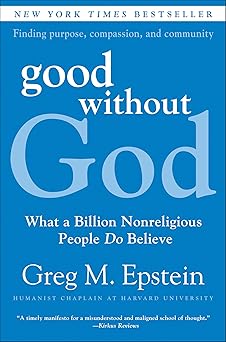
Good Without God: What a Billion Nonreligious People Do Believe
Greg Epstein offers a thoughtful and positive response to New Atheist critiques of religion. As the Humanist chaplain at Harvard, Epstein presents a worldview for nonbelievers rooted in tolerance, community, and morality, without relying on a higher power. Challenging books like God Is Not Great and The God Delusion, Epstein advocates for Humanism as a meaningful, ethical alternative to religion, highlighting what nonbelievers do believe rather than what they reject.

An Imperfect Book: What the Book of Mormon Tells Us about Itself
Earl M. Wunderli is a critical analysis of the Book of Mormon that focuses on its internal inconsistencies, patterns, and language. Rather than depending on external sources like archaeology or tradition, Wunderli examines the text itself to determine whether it holds up to its own claims. He approaches the book as a literary work and evaluates it through reason and close reading, offering a skeptical yet respectful critique that challenges the idea of its divine origin.
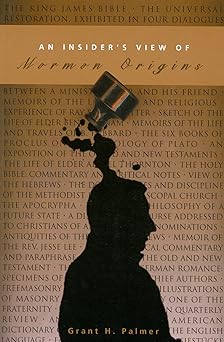
An Insider's View of Mormon Origins (Volume 1)
Grant H. Palmer offers a careful, research-based look at the beginnings of the LDS Church. Drawing from three decades of study, Palmer examines early church history, Joseph Smith’s prophetic claims, and the development of core doctrines. As a former LDS educator, he presents his findings in a clear, accessible way for readers (especially Latter-day Saints) who may be unfamiliar with how much early narratives have shifted over time. The book argues that many sacred events, originally understood as spiritual experiences, have since been reframed as literal history.
This page is a work in progress. I’ll keep adding more titles as I come across them.
Feel free to reach out with more suggestions using the contact form on the drop-down menu of this site.
– Mason


Comments
Post a Comment